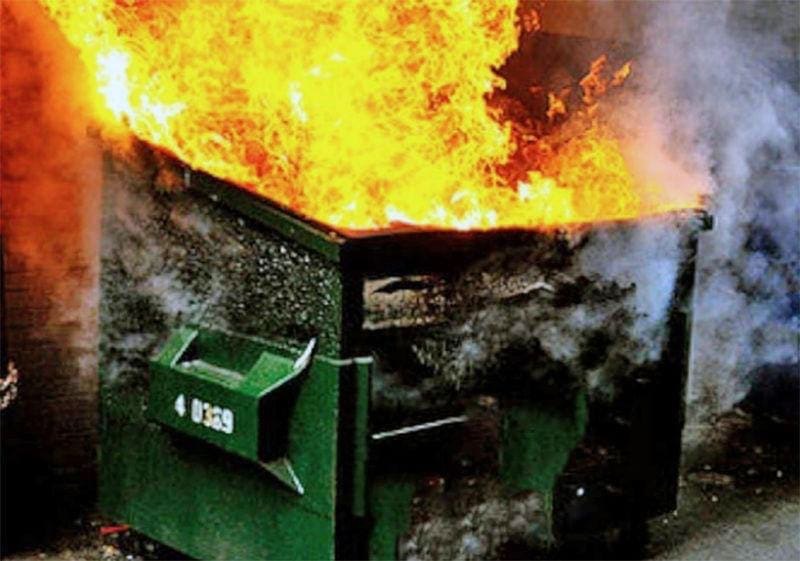
Last Sunday, Travis Haney, the University of Oklahoma football's excellent (really!) beat writer for the Oklahoman, used his column inches to warn athletes that they should think twice before using Twitter:
If I tweeted disparaging or sarcastic things about other newspapers and their writers, surely there would be consequences – either with my employer, or with them directly. What good comes from saying those things? “Dang…Iowa.” What good comes from that?
And, well, he's right. I can't think of many good things that can come from writing the words "Dang... Iowa." Although, frankly, "Dang... Iowa" seems pretty innocuous to me and if that's on the shortlist of problematic tweets than there's probably not a huge issue to worry about but still... yes, Haney is right. Athletes should be careful about what they put on Twitter.
It's just that... I have this nagging feeling I've heard this all before. After the jump I'll try to remember where that was.
September 29th, 2010, NewsOK.com. Berry Tramel:
But again, sports has an example of how athletes have no idea how powerful a tool is social networking. Guys who would give one canned quote after another to media will then get on a smart phone and tweet the most vile or goofy things, without regard to ramifications.
Some people truly don’t understand the Internet’s reach.
Truly don’t understand that nothing floats into oblivion anymore. That something written or said digitally travels at warp speed and will be spotlighted.
November 10th, 2010, The Oklahoman. John Helsley:
OSU basketball: Twitter can cause unwanted attention
Cowboys coach Travis Ford considers banning use of Twitter by his players
March 21st, 2011, The Oklahoman. Berry Tramel:
The NBA has banned players from Twitter just before and during games. Lots of pro and college coaches have issued Twitter bans. U.S. and European Ryder Cup players banned Twitter during their 2010 competition.
If golfers can't be trusted, who can blame Stoops [for implementing a Twitter policy]?
July 25th, 2011. NewsOK.com chat. Jenni Carlson:
Frankly, I'm not sure why these guys continue to think that what they put on Twitter might not come back to bite them. If they don't have a private account, their comments are public and out there for the world to see. I know that coaches talk to players about being careful. If memory serves me, Bob Stoops or someone in power at OU even had a talking to with Stills earlier this year about Twitter. Stills cooled it for a bit, but now, he's back posting fairly regularly.
August 5th, 2011, NewsOK.com Jenni Carlson:
Everyone sees some of the boneheaded stuff that players post on Twitter. Talking down other players. Giving bulletin board material to opponents. Using racial, sexual or vulgar terms. I can see why a coach might want to put the kibosh on Twitter.
Wow, the people at the Dark Tower sure do love to talk about the dangers of Twitter. I don't know, does anyone else find it strange to see reporters keep coming back to this subject? Sure, a parent or the player's coach is going to want to make sure their players don't embarrass themselves in public, but why do reporters care so much? I think they'd be grateful for more colorful personalities and quotes.
Here's the thing: players say dumb things because they often say and think dumb things, not because Twitter is new and shiny and unfiltered. When Travis Lewis moronically suggested some of his teammates were sissies after the loss to Texas Tech, I didn't hear a bunch of reporters gravely intoning about the dangers of post-game press conferences.
Athletes have been saying dumb stuff since the beginning of time, and they've done it in all kinds of different ways and doing it on Twitter isn't all that much different or more interesting. If Jaz Reynolds thinks it's super hilarious to joke about a gunman shooting up the University of Texas campus, the real problem isn't that he tweeted about it, the real problem is that he thinks it's super hilarious to joke about a gunman shooting up the University of Texas campus. Blaming a person's ill-advised thoughts on the medium he uses to relate those thoughts is really missing the point.
So, a modest proposal: let's all chill for a bit with the navel-gazing about the potential hazards of Twitter. I don't think there's a lot more new or consequential that can be gleaned from this particular line of thought. I hope that at the least, next football season we can be talking about the pitfalls of where athletes check in on foursquare.






